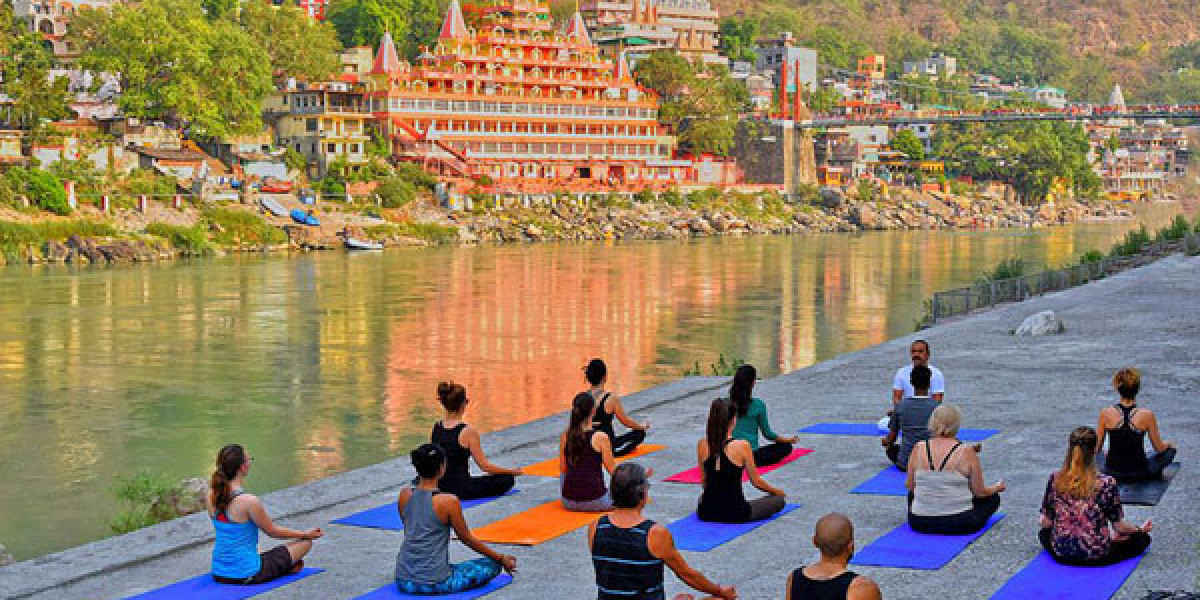Rishikesh, known as the “Yoga Capital of the World,” is one of the most sought-after destinations for yoga enthusiasts from around the globe. Nestled in the foothills of the Himalayas and graced by the sacred Ganges River, this spiritual town offers a serene environment perfect for deepening one’s yoga practice. Among the various training programs available, the 200 Hour Yoga Teacher Training Course (TTC) stands out as the foundational step for anyone aspiring to become a certified yoga instructor or to simply deepen their personal practice.
This article provides a complete guide to the 200 Hour Yoga TTC in Rishikesh — its structure, benefits, curriculum, lifestyle, and how to choose the right school for your transformative journey.
1. Understanding the 200 Hour Yoga Teacher Training Course
A 200 Hour yoga teacher training is the first level of professional yoga certification recognized by Yoga Alliance, an international body that sets global standards for yoga teaching. This program is designed for beginners and intermediate practitioners who want to understand yoga beyond physical postures. It offers a comprehensive introduction to yoga philosophy, anatomy, meditation, pranayama (breathing techniques), and teaching methodology.
Upon successful completion, students receive a Yoga Alliance RYT-200 (Registered Yoga Teacher) certification, allowing them to teach yoga professionally anywhere in the world.
2. Why Rishikesh Is the Ideal Destination
Rishikesh holds a special place in the global yoga community. The tranquil atmosphere, spiritual energy, and ancient lineage of yoga masters make it the perfect place to embark on a yoga teacher training journey.
Here’s why Rishikesh stands out:
Spiritual Environment: The city is filled with ashrams, temples, and meditation centers that radiate peace and positivity.
Authentic Lineage: Many yoga schools are guided by teachers trained in traditional Indian yoga lineages such as Hatha, Ashtanga, and Kundalini.
Natural Beauty: Surrounded by lush forests, mountains, and the holy Ganges, Rishikesh provides an inspiring setting for spiritual growth.
Global Yoga Hub: Students from all over the world come here to study, making it a cultural and spiritual melting pot.
3. Course Structure and Curriculum
The 200 Hour Yoga TTC in Rishikesh is usually a 4-week immersive program that balances theory, practice, and personal transformation. Though each school may vary slightly in their syllabus, most follow the Yoga Alliance guidelines.
Here’s a general overview of what you’ll learn:
a) Yoga Asanas (Postures)
Study of classical Hatha and Ashtanga Vinyasa styles.
Alignment, adjustments, and modifications for all levels.
Understanding the physical and energetic effects of each asana.
b) Pranayama (Breath Control)
Techniques to control and expand prana (life force).
Breathing methods such as Anulom Vilom, Kapalabhati, and Bhastrika.
The role of breath in calming the mind and enhancing meditation.
c) Meditation and Mindfulness
Daily guided meditations to build focus and self-awareness.
Mantra chanting, yoga nidra (yogic sleep), and silent meditation sessions.
Learning to still the mind and cultivate inner peace.
d) Yoga Philosophy
Study of ancient yogic texts such as The Yoga Sutras of Patanjali and Bhagavad Gita.
Understanding the eight limbs of yoga and how they apply to daily life.
Exploring the deeper purpose of yoga beyond physical fitness.
e) Anatomy and Physiology
Understanding the human body’s structure and functions.
How yoga impacts muscles, joints, the nervous system, and the mind.
Learning safe practice and injury prevention.
f) Teaching Methodology
How to plan and structure a yoga class.
Developing communication and demonstration skills.
Hands-on experience through peer teaching and feedback sessions.
g) Ethics and Lifestyle
The yogic code of conduct (Yamas and Niyamas).
Importance of diet, discipline, and daily sadhana (practice).
Living in harmony with oneself and others.
4. Daily Life During the Training
Life during the 200 Hour Yoga TTC in Rishikesh follows a disciplined and balanced routine designed to promote self-awareness and mindfulness.
A typical day might look like this:
5:30 AM: Wake up and morning cleansing rituals.
6:00 AM: Pranayama and meditation.
7:30 AM: Asana practice (Hatha or Ashtanga).
9:00 AM: Breakfast.
10:00 AM: Anatomy or philosophy lecture.
1:00 PM: Lunch and rest.
3:00 PM: Teaching methodology or workshops.
5:00 PM: Evening asana practice or kirtan (chanting).
7:00 PM: Dinner followed by reflection or satsang (group discussion).
9:00 PM: Lights out for early rest.
This structured lifestyle supports physical health, emotional balance, and spiritual growth.
5. Benefits of Completing a 200 Hour TTC in Rishikesh
Completing a 200 Hour yoga teacher training in Rishikesh offers benefits that extend far beyond a certification.
Deep Self-Discovery: The immersive nature of the course helps you reconnect with your true self.
Stronger Mind-Body Connection: Daily practice enhances strength, flexibility, and inner awareness.
Spiritual Growth: Rishikesh’s sacred atmosphere encourages meditation and self-realization.
Teaching Confidence: You gain the skills to design and lead safe, effective yoga classes.
International Certification: Recognition by Yoga Alliance opens opportunities to teach globally.
Life Transformation: Many students experience lasting changes in mindset, habits, and purpose.
6. How to Choose the Right Yoga School
With numerous yoga schools in Rishikesh, selecting the right one can feel overwhelming. Here are some factors to consider:
Yoga Alliance Certification: Ensure the school is registered with Yoga Alliance for global recognition.
Experienced Teachers: Look for instructors with years of teaching and practical experience.
Course Reviews: Check testimonials and independent reviews from past students.
Teaching Style: Choose a program that aligns with your preferred style—Hatha, Ashtanga, Vinyasa, or a mix.
Accommodation and Meals: Opt for schools that provide comfortable, hygienic living and nutritious vegetarian food.
Class Size: Smaller batches allow for personalized attention and better learning.
7. Best Time to Join a 200 Hour TTC in Rishikesh
The best time to join a 200 Hour TTC in Rishikesh is from February to May and September to November. During these months, the weather is pleasant, making outdoor practices and meditation more enjoyable.
8. Preparing for Your Yoga Journey
Before beginning your training, it’s helpful to:
Build a regular yoga practice at home.
Read introductory texts like The Yoga Sutras of Patanjali.
Adopt a healthy vegetarian diet.
Keep an open mind — the journey is as much about inner transformation as learning postures.
Deepen your personal practice or lead retreats.







